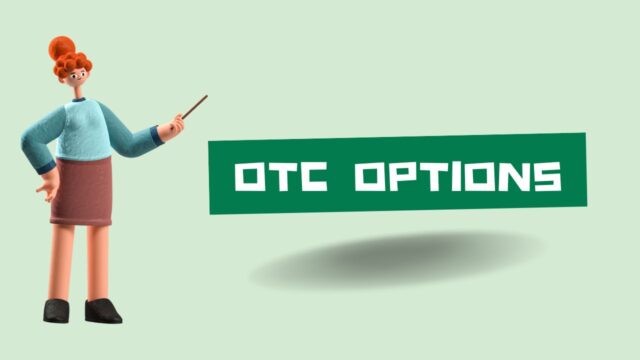
What are OTC options and how do they work
Over-the-counter (OTC) options are a type of financial derivative that allows two parties to trade without going through an exchange. OTC options are typically used by institutional investors and large corporations to hedge against risk. Because there is no central exchange, OTC options are traded directly between the buyer and seller. This can make OTC options more flexible than exchange-traded options, but it also means that there is more counterparty risk involved. When trading OTC options, it is important to use a reputable broker who can provide reliable pricing quotes.
The benefits of trading OTC options
Trading options privately between two parties, rather than on a public exchange, can offer several advantages. One benefit is greater flexibility in negotiations. For example, if two parties want to trade an option with a strike price that is not available on the exchange, they can negotiate a price between themselves. Another benefit of OTC options is that they can be customized to meet the specific needs of the buyer and seller. For instance, an OTC option could be created with a unique expiration date or exercise price.
Finally, trading OTC options can help to create closer relationships between buyers and sellers, as they are typically repeat customers who deal with each other directly. These repeated interactions can lead to a better understanding of each party’s needs and preferences, which can make future negotiations smoother and more efficient.
How to get started with OTC options trading
Trading options can be a great way to generate income, but it’s important to understand the risks involved before you get started. One type of option is an OTC (over-the-counter) option, which is a contract between two parties that is not traded on an exchange. OTC options are less regulated than exchange-traded options, and there is more potential for fraud. For these reasons, it’s important to know what you’re doing before you start trading OTC options. Here are a few things to keep in mind:
1. Make sure you understand the terms of the contract. You should know who the counterparty is, what the strike price is, and when the contract expires.
2. Know the risks involved. OTC options are more risky than exchange-traded options because they’re less regulated and there’s more potential for fraud.
3. Choose a reputable broker. Brokers who deal in OTC options must be registered with the SEC and FINRA.
4. Be aware of your position limit. Position limits are set by the exchanges and limit the number of contracts you can trade in a day.
5. Use stop-loss orders. A stop-loss order is an order to sell an option when it reaches a certain price. This can help limit your losses if the market moves against you.
Following these tips can help you trade OTC options successfully and avoiding common pitfalls.
The risks associated with OTC options trading
Many people are attracted to over-the-counter (OTC) options trading because it offers the opportunity to make quick profits. However, there are also a number of risks associated with this type of trading. For example, OTC options are not regulated by the same rules and guidelines as exchange-traded options. As a result, they may be more prone to fraud and manipulation.
In addition, OTC options are often less liquid than exchange-traded options, which means that it can be more difficult to sell them at a fair price. Finally, OTC options may be subject to greater volatility due to the lack of transparency in the underlying market. For these reasons, it is important to carefully consider the risks before embarking on any OTC options trading.
Tips for successful OTC options trading
First, it is important to choose a reputable dealer. There are many different dealers to choose from, so it is important to do your research before selecting one. Make sure to read reviews and compare rates to find the best deal. Second, be aware of the risks involved. OTC options are much more volatile than exchange-traded options, so it is important to only trade with money you can afford to lose. Finally, have a clear trading strategy in place. OTC options can be unpredictable, so it is important to have a plan for how you will manage your trades. By following these tips, you can increase your chances of success in OTC options trading


































